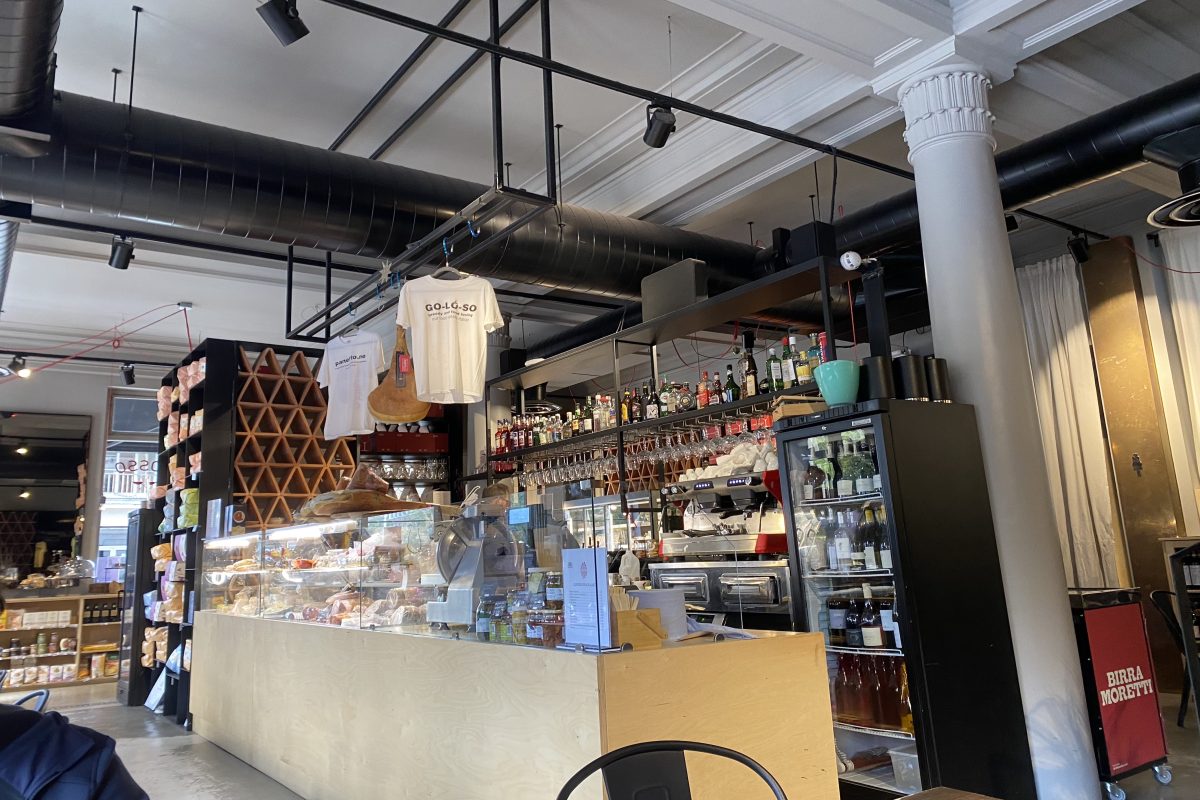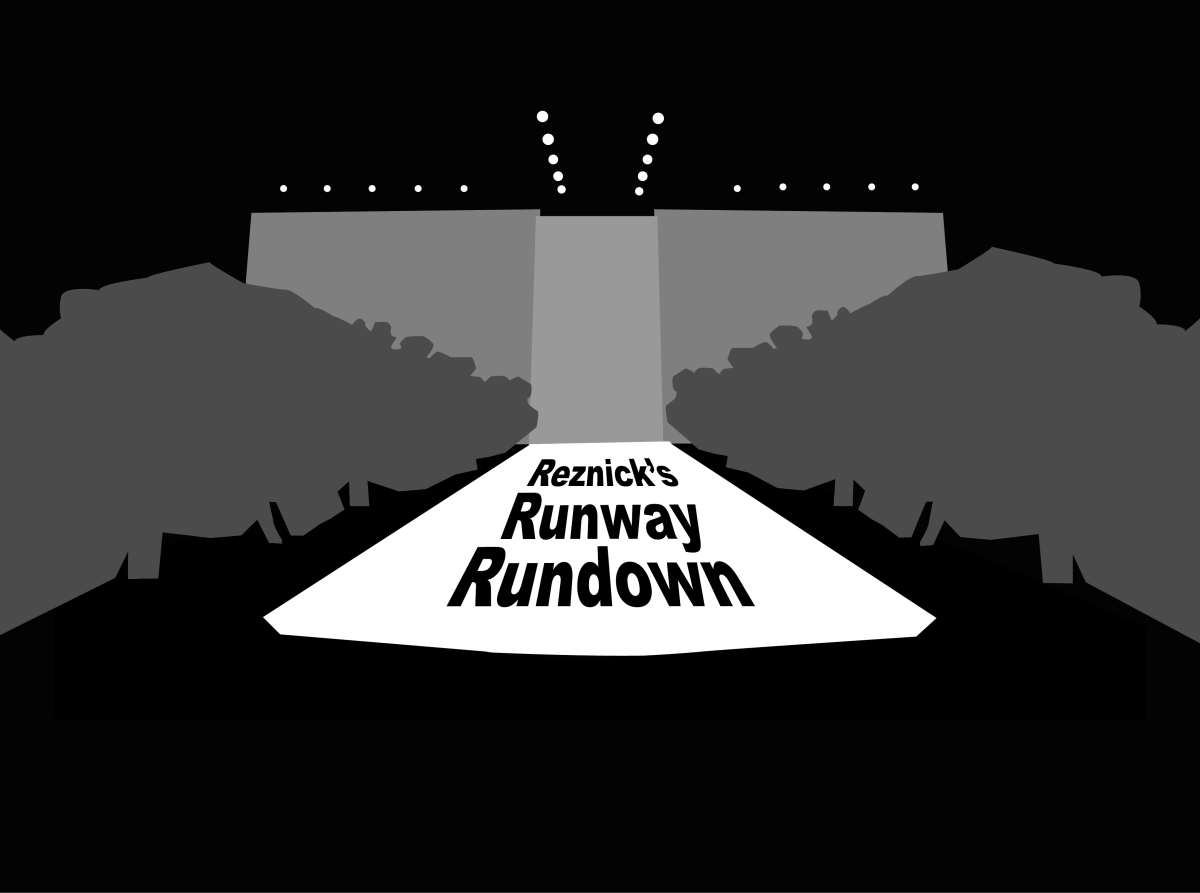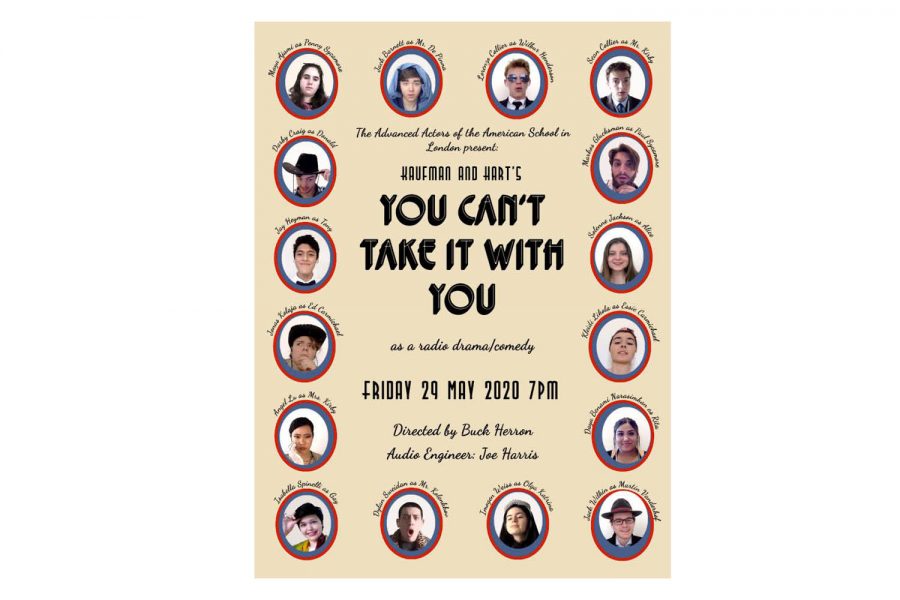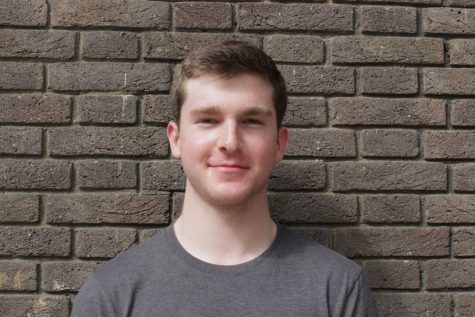Just as many other events have been halted due to the closure of campus, so has the annual spring play presented by the advanced acting class.
This year, the play “You Can’t Take it With You”, a Pulitzer prize-winning production written in the 1930s by George S. Kaufman and Moss Hart, was set to be performed for the community live this spring.
However, when campus was initially closed March 13, the future of the production was uncertain.
Solenne Jackson (’21), who plays Alice, said that the closure set a worrying precedent.
“We had already put a lot of work into it and had already enjoyed working together,” she said. “We all thought it was a big shame. There was a chance we wouldn’t be able to show it to the community.”
In response, Performing Arts Teacher Buck Herron began searching for ways to recover the production.
He settled on an age-old format of theatre: radio comedy, a production with only audio and no visuals. Initially, the idea’s purpose was simply to help the actors remember the play, as at the time, Herron was unsure whether campus would reopen.
“What if we keep practicing with it to keep it fresh and alive? And we will do it now amongst ourselves as a radio drama?” he said. “When the word came down from the administration that we weren’t [returning to campus], I just said ‘Well it looks like this is what we have, so let’s make this the final production’.”
Darby Craig (’21), who plays Donald, said that he was grateful the show could go on.
They were sad when faced with the prospect that they were never going to do this play, but even through radio, and especially through radio, they were able to tap-in, bring those characters alive and still have the challenge of performance.
— Performing Arts Teacher Buck Herron
“I was a bit disappointed when I heard it got canceled, but I was glad to hear that [the radio comedy] was happening,” he said.
Jackson said that she was grateful for Herron’s quick response, and that his teaching was very useful for the transition to voice acting.
“He was really quick to find a solution, and [was] super supportive,” she said. “He was really good at giving staging directions, … different ways to use your voice and trying to create more group sound.”
Herron said that he recognized the disappointment that students felt, but that their ability to act was never lost.
“It’s important for the actors that they brought the characters alive again,” he said. “They were sad when faced with the prospect that they were never going to do this play, but even through radio, and especially through radio, they were able to tap-in, bring those characters alive and still have the challenge of performance.”
Herron said that the differences between acting a stage production and acting a radio comedy are plentiful.
“If you think of it this way, you’re watching a play and you see an actor moving around, you see a costume, you see a set, you are listening to their voice, but the entire picture gives you an impression of what is going on,” he said. “With voice it’s pure. With radio it’s pure. You either hear it or you don’t hear it. Either the voice sounds full enough to be interesting or it doesn’t.”
Craig said that these differences made it difficult to act the way he likes.
“For me, I … do my best when I’m on stage and I’m more of a physical presence,” he said.
Despite being a positive solution, the logistics of performing the radio comedy posed challenges.
For each act, actors would join a Zoom call, but due to inadequacies of Zoom, they simultaneously recorded their audio into an application called Audacity. Since audio is a vital aspect of putting on a radio comedy, the media department sent all 16 participating students high-quality microphones to record with.
I was a bit disappointed when I heard it got canceled, but I was glad to hear that the radio comedy was happening.
— Darby Craig ('21)
“There would be some times where, if you weren’t able to say your line or the audio wasn’t good, then you’d have to re-[record] it later on which was a bit inconvenient,” Craig said. “But we did the best that we could with it.”
Similarly, Jackson said that acting in school was easier, as the environment of working with her fellow actors on stage was constructive.
“With acting, it requires that you’re together,” she said. “It creates a dynamic, and as a class, we have a really fun and outgoing, confident atmosphere.”
Yet, she said that, through Zoom, this atmosphere has been partially re-created.
“It was really nice to get the group back together over Zoom,” Jackson said. “We’ve kind of recreated a similar atmosphere. It was definitely sad, especially for acting not to be … on the same stage, and instead [we are on] the same screen, but it’s not the same.”
Once the recording process was complete, work on the drama was not finished. Stringing all of the audio together in post-production required the audio engineering work of Senior Media Technician Joe Harris. During the post-production process, further sound effects were also incorporated.
Herron said that the nature of the radio comedy is very surprising, in that it gives a sense of illusion that the actors are together.
“When you hear it, you have to say to yourself, all these people sound like they’re in the same room – no they’re not,” he said. “They are in 16 different places right now. That to me is the craziness of this, and that’s what is so interesting. “
Herron described “You Can’t Take It with You” as charming, sweet, sentimental and quirky. The play follows the story of a young girl who falls in love with the vice president of a large Wall Street company. But when she brings him back to her eccentric family, all sorts of shenanigans ensue.
Jackson said that she encourages members of the community to listen to the production, especially as it is monumental for Herron.
“I just hope the community enjoys the play because it’s his last ASL direction,” she said.
Those with an ASL login will be able to access the live stream here. It premieres at 7:00 p.m. May 29.







